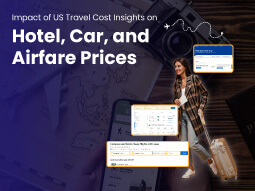Comprehensive Overview of Price Scraping on Business

In today's tough online market, businesses face a tricky situation. It is more than having the best product or lowest price. Success also depends on finding the right balance between making money and keeping customers' trust.
Employing data-driven methods, creating compelling marketing campaigns, and giving competitive pricing are all critical weapons on this digital gladiatorial battlefield. But a powerful shadow has emerged in the form of scraping product prices, a despicable practice that poses a danger to the core foundations of the internet ecosystem.
What is Price Scraping?
Price scraping, or the systematic capture of competitors' pricing data by malicious bots, disrupts this delicate machinery. It messes with the fairness of pricing, making it tough for businesses to decide on fair and long-lasting prices. This confusion makes customers wonder if the deals they see are real or just a trick. So, businesses must be careful and protect their pricing info from these sneaky bots to keep prices fair and ensure customers trust them in the fast-paced online world.
Fraudsters use ecommerce price scraper bots to gather pricing information from targeted websites. These bots automate the price scraping process and collect product-specific pricing data. These attacks are not confined to a particular website or product; in many situations, competitors want information about all of their rivals.
For example, a new online retailer specializing in winter boots may wish to learn as much as possible about its competitors' pricing methods. This information lets users compare pricing for identical boot models, track price variations, evaluate discounts, and more.
What is the Impact of Price Scraping

Ecommerce price scraping is the automated process of extracting pricing information from websites, significantly impacting businesses and consumers in the online marketplace.
Distorted Market Dynamics
In the online business world, when prices get constantly copied and lowered, it becomes like a snowball effect, and everyone tries to have the lowest prices. Companies keep changing their prices all the time to keep up. Unfortunately, this leads to a problem – the quality of what they're selling often suffers. This chaotic situation makes it hard for customers to pick the best product or service based on its actual value instead of just looking at the price. So, fair competition becomes a bit of a mess, and it's tough for people to make intelligent choices.
Profit Margins
When businesses make less money because of e-commerce price scrapers, it's not just about losing profits. It also stops them from investing in new ideas, caring for their employees, and growing their business. This can be a big problem for businesses trying to do the right thing. This might sound good for them, but it means other honest businesses make less money because they have to lower their prices too.
Consumer Mistrust
Scraping prices from websites can lead to customers wondering if the discounts they see are real. Tricky pricing information can make people stop trusting a business, hurting sales and making them look for more trustworthy places to shop. When customers start doubting a business because of tricky pricing, it affects its reputation. This loss of trust can make loyal customers go somewhere else. In a time when trust is really important, businesses risk losing customers who want transparent and honest dealings.
Market Transparency Issues
Scraping product prices makes it tough for businesses and customers to figure out what's a fair price. This lack of clarity in pricing can make it tricky for people to trust and make intelligent buying choices. With scraping prices, businesses need help to set fair prices, and customers need help knowing if they're getting a good deal. This lack of clear information can make potential customers hesitate and can hold back businesses that believe in fairness and honesty.
Resource Drain for Businesses
To stop ecommerce price scraping, businesses have to spend extra time and money to protect their prices. This means they have to use better security and tools, taking away resources they could use to make their business better. But these efforts take away time and money that could be used to make better products or offer better price-scraping services. It becomes a challenge for businesses to grow and improve.
Legal and Ethical Problems
Using price scraping can lead to legal troubles because it involves taking someone else's data without permission. Businesses doing this might face legal action and damage their reputation. Following ethical rules in the industry becomes essential to solve this problem together. Price scraping creates confusion in the market, reduces profits for honest businesses, makes customers doubt discounts, confuses fair pricing, requires extra effort from businesses, and can lead to legal and ethical troubles. Solving these issues needs a combined effort involving technology, ethics, and collaboration within the industry.
What are the Reasons to Perform Price Scraping Activities?
Various entities typically carry out price scraping, including competitors, data aggregators, and even third-party service providers. The motivations behind price ecommerce scraping can vary, and different actors may engage in this activity for distinct reasons:
Competitors
Some companies try to beat their competitors by using price scraping services. This means they collect and analyze the prices of other businesses like theirs. By doing this, they can adjust their own prices to be lower. This way, they can offer their products or services at cheaper rates than their competitiors, making them more appealing to customers. In the end, more people might buy from their business instead of others, which can help them grab a bigger market share and make more sales.
Data Aggregators and Price Comparison Websites
Some companies, often operating as data aggregators or price comparison websites, engage in price scraping to gather comprehensive pricing data from various sources. They do this to give people helpful details about price fluctuation, product availability, and where to find the best deals. Even though these companies want to help consumers, the way they collect this information can be a problem if they don't get permission or do it in a fair way. This could lead to ethical concerns about their actions.
Dynamic Pricing Adjustments
Some businesses use price scraping services to set flexible prices for their products. This means they regularly check and adjust their prices by looking at what their competitors are charging, considering factors like how much demand there is, how much inventory they have, and what the overall market is doing. While this strategy can be helpful, businesses must do it in a fair and legal way. Trying to get information from other websites without permission can lead to legal trouble and harm a company's reputation. That's why it's becoming more critical for businesses to follow rules and ethical guidelines when performing an attempt to scrape prices so that online marketplaces stay fair and transparent for everyone.
How to Mitigate the Risks of Price Scraping?

It takes a multifaceted strategy to reduce the hazards associated with scraping product prices, focusing on detection and prevention. The following are some essential tactics that you may use:
Technical Difficulties:
- Make website sections hidden from human visitors and only accessible by bots. These regions may be accessed to initiate alerts, making identifying scraping activity possible early on.
- Install dynamic CAPTCHAs to make it more difficult for automated programs to surpass security measures. These CAPTCHAs adjust depending on bot activity.
- To stop quick and excessive data extraction, limit the number of queries a user (or bot) may make in a given amount of time.
- To prevent access by possible bad actors, identify and ban questionable IP addresses linked to known scraping activities.
- By dynamically serving distinct information to bots and human users, you may make it more difficult for scraping bots to retrieve reliable data.
Data Distortion:
- Periodically shuffling or rotating web page elements may make it more difficult for scraping bots to find and extract consistent data.
- Modifying price data at the pixel level makes it more difficult for automated systems to decipher and gather reliable data.
- This technique adds another level of difficulty for scraping bots by dynamically loading and displaying price data
Conditions of Service:
- Use specialist software that can instantly detect and stop dangerous bots. Make constant adjustments and improvements to the system's capacity to identify changing scraping tactics by implementing machine learning algorithms.
- Configure automatic alerts to detect unusual activity and take prompt action. Possible courses of action are restricting the source of suspected traffic, informing the appropriate staff, or starting extra security measures.
Legal Reaction:
- Determine if legal action is necessary by assessing the impact and seriousness of the scraping activity.
- Speak with a lawyer to learn more about your choices, including using persistent violators, seeking damages, or sending stop-and-desist letters.
Conclusion
To sum up, price scraping is a serious risk to companies that conduct business online. Businesses may strengthen their defenses and safeguard their price data by knowing its definition, effects, and preventative techniques. In an increasingly competitive industry, organizations must promote openness, be proactive, and adopt emerging technology in order to preserve customer confidence.
The most innovative scraping prices from websites by iWeb Scraping helps to extract the price of a bunch of products for better decision-making and deciding on the next move without any hurdles.




